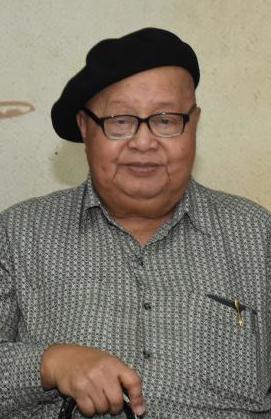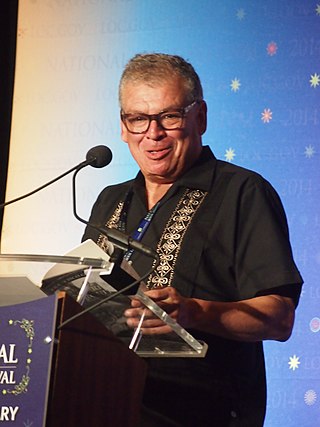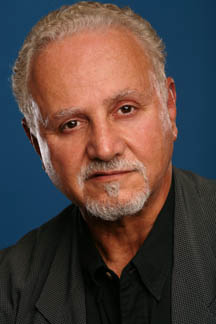Related Research Articles

Alejo Carpentier y Valmont was a Cuban novelist, essayist, and musicologist who greatly influenced Latin American literature during its famous "boom" period. Born in Lausanne, Switzerland, of French and Russian parentage, Carpentier grew up in Havana, Cuba, and despite his European birthplace, he strongly identified as Cuban throughout his life. He traveled extensively, particularly in France, and to South America and Mexico, where he met prominent members of the Latin American cultural and artistic community. Carpentier took a keen interest in Latin American politics and often aligned himself with revolutionary movements, such as Fidel Castro's Communist Revolution in Cuba in the mid-20th century. Carpentier was jailed and exiled for his leftist political philosophies.

Mexican literature stands as one of the most prolific and influential within Spanish-language literary traditions, alongside those of Spain and Argentina. This rich and diverse tradition spans centuries, encompassing a wide array of genres, themes, and voices that reflect the complexities of Mexican society and culture. From ancient indigenous myths to contemporary urban narratives, Mexican literature serves as a poignant reflection of the nation's essence, inviting readers to explore its rich history, diverse culture, and collective aspirations.

Laura Beatriz Esquivel Valdés is a Mexican novelist, screenwriter and politician, serving in the LXIII Legislature of the Mexican Congress in the Chamber of Deputies for the Morena Party from 2015 to 2018. Her first novel Como agua para chocolate became a bestseller in Mexico and the United States, and was later developed into an award-winning film.

Francisco Sionil José was a Filipino writer who was one of the most widely read in the English language. A National Artist of the Philippines for Literature, which was bestowed upon him in 2001, José's novels and short stories depict the social underpinnings of class struggles and colonialism in Filipino society. His works—written in English—have been translated into 28 languages, including Korean, Indonesian, Czech, Russian, Latvian, Ukrainian and Dutch. He was often considered the leading Filipino candidate for the Nobel Prize in Literature.

Francisco Goldman is an American novelist, journalist, and Allen K. Smith Professor of Literature and Creative Writing, Trinity College. His most recent novel, Monkey Boy (2021), was a finalist for the 2022 Pulitzer Prize for Fiction.

Latin American literature consists of the oral and written literature of Latin America in several languages, particularly in Spanish, Portuguese, and the indigenous languages of the Americas. It rose to particular prominence globally during the second half of the 20th century, largely due to the international success of the style known as magical realism. As such, the region's literature is often associated solely with this style, with the 20th century literary movement known as Latin American Boom, and with its most famous exponent, Gabriel García Márquez. Latin American literature has a rich and complex tradition of literary production that dates back many centuries.

Felice Picano is an American writer, publisher, and critic who has encouraged the development of gay literature in the United States. His work is documented in many sources.
Nguyen Qui Duc was a Vietnamese American radio broadcaster, writer, editor and translator.

Harold Augenbraum is an American writer, editor, and translator. He is the former Executive Director of the National Book Foundation, and former member of the Board of Trustees of the Asian American Writers Workshop, and former vice chair of the New York Council for the Humanities. Before taking up his position at the National Book Foundation in November 2004, for fifteen years Augenbraum was Director of The Mercantile Library of New York, where he established the Center for World Literature, the New York Festival of Mystery, the Clifton Fadiman Medal, and the Proust Society of America. He has been awarded eight grants from the National Endowment for the Humanities, received a Raven Award from the Mystery Writers of America for distinguished service to the mystery field, and coordinated the national celebration of the John Steinbeck Centennial. He is on the advisory board of the literary magazine The Common, based at Amherst College. In 2016, he was awarded an honorary doctorate from Concordia College in Moorhead, Minnesota. He is co-founder, with Alice Kaplan, of the Yale Translation Initiative at Yale University, where he is Associate Director, and from 2017 to 2019 was Acting Editor of The Yale Review.

Alberto Blanco is a Mexican poet. Born in Mexico City, he spent his childhood and adolescence in that city, and he studied chemistry at the Universidad Iberoamericana and philosophy at the Universidad Nacional Autónoma de México. For two years, he pursued a master's degree in Asian Studies, specializing in China, at El Colegio de México.1 Blanco was first published in a journal in 1970. He was co-editor and designer of the poetry journal El Zaguan (1975–1977), and a grant recipient of the Centro Mexicano de Escritores, el Instituto Nacional de Bellas Artes, and the Fondo Nacional para la Cultura y las Artes. In 1991 he received a grant from the Fulbright Program as a poet-in-residence at the University of California, Irvine; and, in 1992, he was awarded a grant from the Rockefeller Foundation. He was admitted into the Sistema Nacional de Creadores in 1994, for which he has also been a juror. In 2001 he received the Octavio Paz Grant for Poetry, and in 2008, he was awarded a grant from the Guggenheim Foundation. He remains a member of the Sistema Nacional de Creadores.
Willis Barnstone is an American poet, religious scholar, and translator. He was born in Lewiston, Maine and lives in Oakland, California. He has translated works by Jorge Luis Borges, Antonio Machado, Rainer Maria Rilke, Pedro Salinas, Pablo Neruda, and Wang Wei, as well as the New Testament and fragments by Sappho and pre-Socratic philosopher Heraclitus (Ἡράκλειτος).
Leza Lowitz is an American expatriate writer residing in Tokyo, Japan and in the American Southwest. She has written, edited and co-translated over twenty books, many about Japan, its relationship with the US, on the changing role of Japanese women in literature, art and society, and about the lasting effect of the Second World War and the desire for reconciliation in contemporary Japanese society. She is also an internationally renown yoga and mindfulness teacher recognized for her work bridging poetry and the spiritual path through disciplines like yoga and mindfulness.
Kathleen Weaver is an American writer and editor, who was born in Sioux City, Iowa.

Peter R. Bush is an English literary translator. He has translated works from Catalan, French, Spanish and Portuguese to English, including the work of Josep Pla, Joan Sales and Merce Rodoreda.

Valerie Miles is a publisher, writer, translator and the co–founder of Granta en español. She is known for promoting Spanish and Latin American literature and their translation in the English speaking world, at the same time as bringing American and British authors to Spain and Latin America for the first time, working with main publishing houses on the sector. She is currently the co-director of Granta en español and The New York Review of Books in its Spanish translation. On 2012 she co-curated a Roberto Bolaño exhibit at the Center for Contemporary Culture in Barcelona. In addition, she is a professor in the post-graduate program for literary translation at the Pompeu Fabra University in Barcelona.
Suzanne Jill Levine is an American writer, poet, literary translator and scholar.
Boyd Tonkin Hon. FRSL is an English writer, journalist and literary critic. He was the literary editor of The Independent newspaper from 1996 to 2013. A long-time proponent of foreign-language literature, he is the author of The 100 Best Novels in Translation (2018). He has been involved with leading literary prizes such as the Man Booker International Prize and the Independent Foreign Fiction Prize. In 2020 Tonkin was the recipient of the Benson Medal from the Royal Society of Literature.
Luis H. Francia is a Filipino American poet, playwright, journalist, and nonfiction writer. His memoir, Eye of the Fish: A Personal Archipelago, won both the 2002 PEN Open Book and the 2002 Asian American Literary Awards.
References
- 1 2 3 4 "Thomas Christensen." Contemporary Authors Online. Detroit: Gale, 2013. Biography in Context. Web. 18 Nov. 2015. Retrieved 3/28/2016.
- ↑ Catamaran Literary Reader. Retrieved 3/28/2016.
- 1 2 Author website. Retrieved 3/28/2016.
- ↑ Author website. Retrieved 3/28/2016.
- ↑ Rhodes College 1616 Symposium website.
- ↑ Georgia Rowe, "Tom Christensen's 'River of Ink' traces some of history's more obscure intertwinings," [San Jose Mercury News]. Retrieved 3/28/2016.